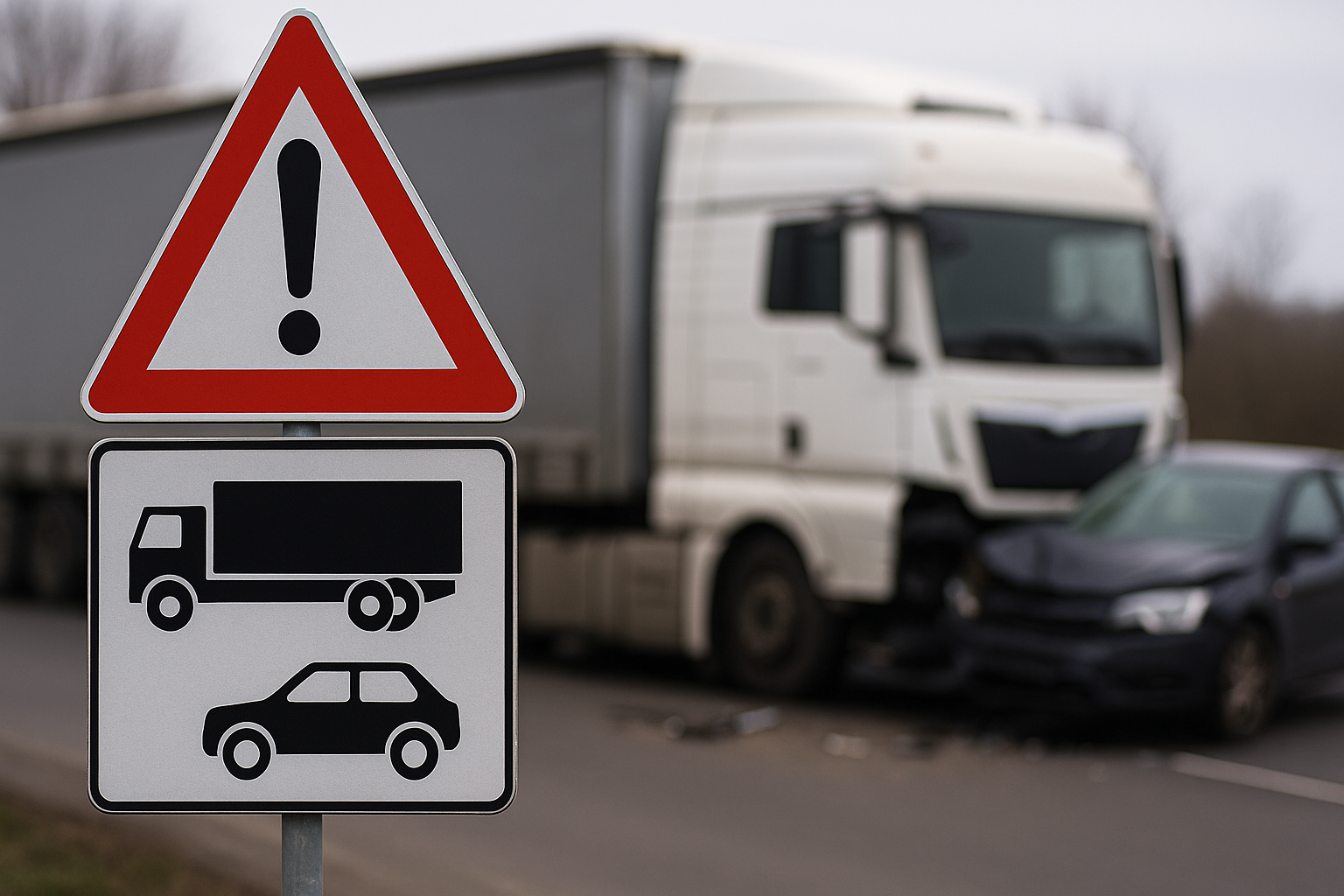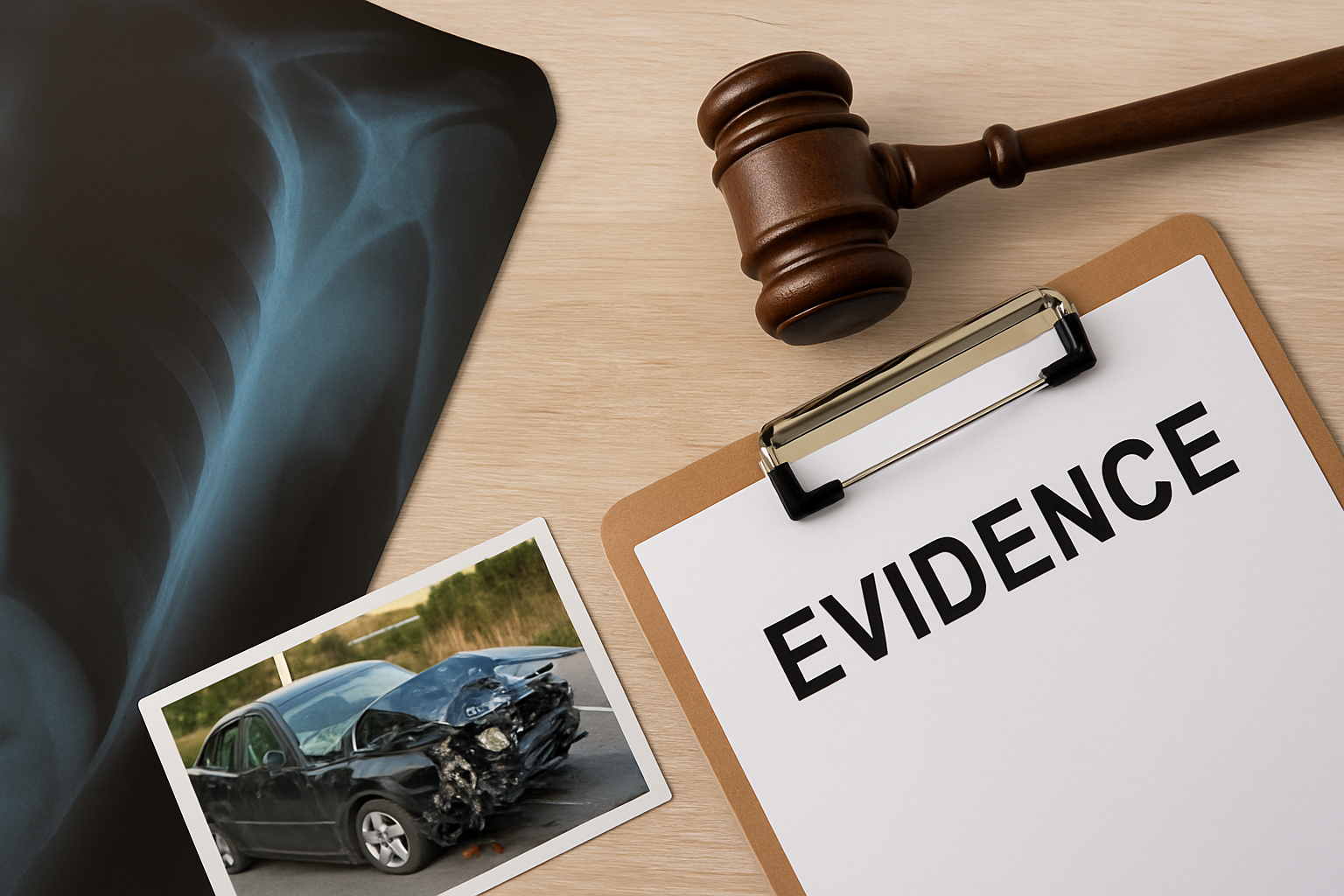When it comes to personal injury claims, not all vehicle accidents are treated equally under the law. While both truck and car accidents can cause severe injuries and property damage, the legal process for each can differ significantly. Understanding the legal differences between truck accidents and car accidents can help victims know what to expect and how to protect their rights.
What makes truck accidents legally different from car accidents?
The main distinction lies in who may be held responsible and how complex the case becomes. Truck accidents often involve multiple parties such as the driver, the trucking company, cargo loaders, and even vehicle manufacturers.
Car accidents, in contrast, typically involve only the drivers of the vehicles. This difference makes truck accident claims more complicated from the start.
Another key factor is regulation. Commercial trucks are governed by strict federal and state laws enforced by the Federal Motor Carrier Safety Administration (FMCSA), which sets rules on driving hours, maintenance, and load limits. These do not apply to ordinary passenger cars.
Who can be held liable in a truck accident vs. a car accident?
Liability in car accidents usually falls on the at-fault driver whose negligence, such as speeding, texting, or running a red light, caused the crash.
In truck accidents, however, several parties may share responsibility:
- Truck driver: For reckless driving, fatigue, or substance use.
- Trucking company: For unsafe hiring practices, inadequate training, or pushing drivers to break rest rules.
- Cargo loaders: For overloading or improperly securing cargo.
- Manufacturers: For faulty brakes, tires, or other mechanical defects.
Because multiple parties may be liable, proving fault in a truck accident requires deeper investigation and legal expertise.
How do insurance requirements differ between truck and car accidents?
Trucking companies must carry significantly higher insurance coverage than individual car owners to protect against severe losses.
| Vehicle Type | Minimum Liability Coverage | Regulating Body |
|---|---|---|
| Passenger Car | $15,000–$30,000 (varies by state) | State laws |
| Commercial Truck | $750,000–$5,000,000 depending on cargo type | FMCSA |
Higher policy limits mean that truck accident settlements can be larger—but insurers also fight harder to avoid paying out full compensation.
Why are injuries often more severe in truck accidents?
Trucks can weigh up to 80,000 pounds, compared to the average car’s 4,000 pounds. The immense size difference leads to far greater impact forces during a crash.
Truck accidents often cause catastrophic injuries such as traumatic brain injuries, spinal cord damage, internal bleeding, and multiple fractures.
While car accidents can still result in serious injuries, the likelihood of fatal or permanently disabling harm is much higher in truck crashes, leading to larger medical bills and longer recovery times.
How do investigations differ between truck and car accidents?
Truck accident investigations are far more technical. Attorneys often work with experts to examine:
- Black box data recording speed and braking
- Driver logs tracking hours on the road
- Maintenance records showing compliance with safety checks
- Company policies that may encourage unsafe driving
Car accident investigations are typically simpler, relying on police reports, photos, and witness statements. However, trucking companies often send their own investigators immediately after a crash, so victims must act quickly to preserve crucial evidence.
What regulations apply to truck drivers but not car drivers?
Truck drivers must follow federal safety regulations under the FMCSA, including:
- Hours of Service (HOS) limits: Maximum of 11 driving hours per shift.
- Routine inspections: Regular maintenance and safety checks.
- Drug and alcohol testing: Random and post-accident testing requirements.
- Commercial licensing: Valid Commercial Driver’s License (CDL) with proper endorsements.
Car drivers only follow state traffic laws, making truck driver oversight much stricter and legally relevant in accident claims.
How does proving negligence differ in truck vs. car accidents?
In a car accident, proving negligence often involves showing that the driver failed to act reasonably—like texting while driving or ignoring traffic signals.
In a truck accident, negligence can involve several layers:
- The trucking company pushing drivers to exceed legal work hours.
- Falsified maintenance logs or safety records.
- Insufficient driver training or supervision.
Because of these factors, truck accident cases require more evidence, expert analysis, and time to resolve.
What compensation can victims claim in both accidents?
Victims of both truck and car accidents may seek compensation for:
- Medical bills and rehabilitation
- Lost wages or reduced earning capacity
- Pain and suffering
- Property damage
However, due to the scale of truck accidents, compensation is often significantly higher. Trucking companies typically have corporate insurers capable of large settlements but also employ aggressive defense teams to minimize payouts.
How long do victims have to file a claim in California?
In California, the statute of limitations for personal injury cases is two years from the date of the accident.
Because truck accidents involve multiple parties and complex evidence, it’s best to begin the legal process as early as possible. Early action helps preserve records, logs, and black box data before they are lost or overwritten.
How can a lawyer make a difference in these cases?
Car accident claims are usually handled through standard insurance negotiations. Truck accident cases, on the other hand, require a deep understanding of transportation law, federal regulations, and multi-party liability.
An experienced attorney can gather evidence, coordinate with experts, and challenge the tactics used by large trucking companies and insurers to limit compensation.
When evidence makes or breaks your case
Truck accident claims often depend on specialized evidence like GPS data, inspection reports, and cargo manifests. Without fast legal intervention, this evidence can be lost or altered.
Car accident evidence tends to be simpler – police reports, photos, and witness statements – but still plays a major role in proving fault and damages.
How Knapp Moss can help after a serious accident
The attorneys at Knapp Moss have extensive experience representing victims of both truck and car accidents across California. Our legal team understands the nuances of federal trucking laws, state traffic regulations, and insurance negotiation strategies.
Knapp Moss works quickly to investigate crashes, gather key evidence, and pursue maximum compensation for injury victims and their families.
If you’ve been hurt in a truck or car accident, contact Knapp Moss today for a free consultation and protect your rights from day one.
Frequently Asked Questions
Yes. Truck accident cases often involve federal regulations, corporate insurers, and multiple defendants, while car accident claims usually deal with just the drivers and their insurers.
Car accidents are usually investigated by police and insurance adjusters. Truck accidents, however, involve state and federal authorities, legal experts, and sometimes accident reconstruction specialists.
Yes. Because truck accidents usually cause greater injuries and involve higher insurance limits, settlements tend to be much larger than those from typical car crashes.




